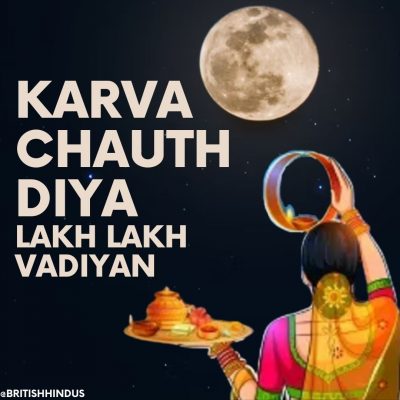Today, Thursday 13th October 2022, many Hindu women are performing the Karva Chauth Vrat. Like the Varalakshmi Vrat in the South or Jayaparvati Vrat in Gujarat, Karwa Chauth is a regional observance mostly practised in parts of Northern Bharat. This previously ‘small’ festival has now become well known due to Bollywood and the media. Some of this attention has had a positive impact in promoting the Hindu culture of Punjabis, Haryanvis etc., and also encouraging those from other regions to take part.
What is Karva Chauth?
Karva Chauth is a Vrat (fast) carried out by women for the well-being of their husbands that was traditionally observed in Northern Bharat, particularly Punjab. Women fast during the day and eat after moonrise, once they have performed a puja to Shiva, Parvati and Chandra Deva (moon). As part of the festival, women dress up, decorate their hands, and receive gifts from family members. In recent times, the Vrat has received considerable media attention by those claiming it is misogynistic and oppressive of women.
Shakti for the defenders of dharma
As with other similar Vrats in other regions, women observe Karwa Chauth in order to go inwards and channel their inner power for the wellbeing of their loved ones. Rather than being ‘oppressive’, this practice acknowledges women as being the earthly counterparts of the divine femine power; Adi-Shakti. This idea takes on extra significance for Karwa Chauth, traditionally observed in places like Punjab that bore the brunt of foreign invasions. Here more than other regions, men left home for battles often never to return, hence the Vrat provided a source of spiritual support for many families engaged in the military.
Creating a space for women
Many of the Karwa Chauth rituals involve women of the community coming together. In a society where women rarely get a day off from chores, Karwa Chauth provides a well earned day off. This is particularly important for young brides who leave their homes to live with their husband’s family where they have very few close friends. So whilst the day does involve some self-discipline in the form of a fast, the overall theme of vrat is women celebrating their lives and relationships.

